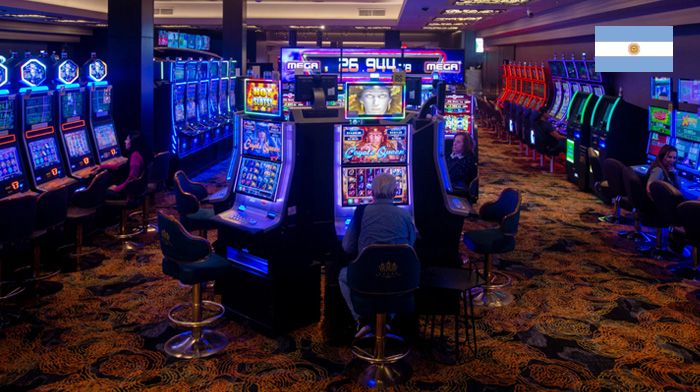In the world of gambling, in which chance and strategy meet, a unique tapestry of beliefs emerges—one that braids luck, fate, and the enigmatic nature of casino games. Casinos, bustling with excitement and anticipation, are not just venues for placing bets; they are also arenas in which superstitions thrive. From the novice player to the seasoned gambler, these mysterious practices often shape how individuals approach the games they play, believing that their actions can impact the outcome in ways that go beyond mere probability.
As players gather around roulette wheels, blackjack tables, and slot machines, the atmosphere is thick with stories of lucky charms, rituals, and codified behavior that defy logic yet provide a sense of comfort. Whether it’s wearing a specific outfit, following a particular sequence of bets, or even avoiding certain numbers, the attachment to various superstitions reflects a deep-rooted desire to manipulate the uncontrollable. This article delves into the captivating world of casino game superstitions, investigating the beliefs that both entertain and mystify those who dare to play.
Historical Roots of Superstitions
Betting games have long been interwoven with an array of superstitions that can be traced to early cultures. The roots of these ideas can be linked to humanity’s innate wish to manage the uncertain outcomes associated with fortune and chance. In ancient civilizations, activities of uncertainty were often linked to ritualistic practices. Players would call upon favor or seek favor from gods, believing that their actions could affect the results in their benefit. This basis laid the foundation for the variety of superstitions that developed as gambling evolved over ages.
During the medieval age, betting became a common pastime across European nations, and with it, a colorful tapestry of superstitions developed. Participants adopted various rituals and charms, believing they could affect the results of games. The value of numbers, in particular, emerged to appear in superstitions around card games and dice. The number seven was often considered auspicious, while various numbers carried negative connotations. These ideas mirrored the cultural contexts of the time, evolving as they transferred through generations and changed to different gaming environments.
As casinos appeared in the seventeenth century, particularly in the Italian peninsula and France, the atmosphere surrounding betting became steeped in mystique. The growing availability of casino games allowed for the dissemination and growth of superstitions among players. Concepts like lucky charms, specific seating positions, and rituals gained importance, creating a unique culture within betting houses. As these traditions continued to thrive, they became integral to the essence of casino games, illustrating how historical developments and culture shape the belief systems that influence how players engage with fortune.

Popular Casino Myths
Superstitions surrounding gambling activities are abundant and diverse, reflecting the hopes and anxieties of players as they participate in chance-based activities. One of the most prevalent beliefs is that specific numbers bring luck or misfortune. For example, the digit 7 is often seen as a favorable digit, frequently sought after by gamblers looking for a favorable outcome. Conversely, the number 13 is routinely considered cursed, leading many players to steer clear of it during their gambling periods.
Another frequent belief relates to practices that players believe can influence their odds. It could be blowing on dice before a roll, using a specific hand to place a wager, or even putting on particular items of attire, many people feel that these actions can sway luck in their favor. These rituals offer a sense of power in an otherwise random environment, reinforcing the idea that luck can be created through personal convictions and habits.
Lastly, the environment and atmosphere of the casino itself adds to superstition. Many gamblers suggest that the presence of certain symbols, such as four-leaf clovers or fortunate coins, can enhance their chances of winning. Additionally, gamblers might hold to the belief that winning streaks can be halted by mundane events, such as someone walking past or a accident at the table. The collective atmosphere in a casino can amplify these superstitions, creating a communal culture of superstitions that goes beyond single encounters. Giới thiệu bongdalufuni.com
Impact of Superstitions on Players
Superstitions play a significant role in the mindset of gamblers, often affecting their actions and choices. A lot of gamblers believe that fortune can be influenced through different rituals, such as donning a talisman, choosing particular hues, or steering clear of particular digits. This dependence on superstitions can create a sense of control in an environment that is intrinsically unpredictable. Players frequently feel more confident and engaged when they think that their actions could sway the result of a game in their favor.
The influence of these superstitions extends past singular players, affecting the general atmosphere within the casino. For example, a player who believes in the luck of a certain slot machine might draw a crowd, as onlookers are intrigued by their apparent luck. This shared belief can heighten excitement and create a dynamic environment, leading to an interesting experience even for those who may not necessarily be believers themselves. The excitement around specific games can lead to increased participation and longer playing sessions, supporting the casino’s vibrant social scene.
In some cases, superstitions can lead to harmful effects for players. Relying too much on rituals can result in poor gambling decisions, as some may overlook basic strategies in favor of baseless beliefs. Additionally, the pressure to perform rituals may increase anxiety and stress levels, detracting from the pleasure of the experience. Ultimately, while superstitions can enhance the thrill of playing casino games, they can also lead to poor choices that overshadow the fun and amusement intended in the casino experience.